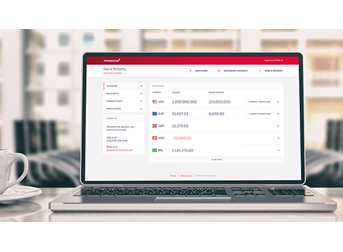Daily Brief

Chinese PMIs revive confidence
5 minute readUSD
In Friday's end-of-month ecostat blowout the United States played only a relatively minor part. There was no shortage of US data but they had only a passing effect on the USD. Personal income and spending increased by 0.2% and 0.1 respectively in February. The core personal consumption expenditure price index, an important indicator of inflation, was up by an annual 1.8%, down from 2.0% the previous month. The Chicago purchasing managers' index unexpectedly dropped six points to 58.7 in March while the finalized Michigan consumer sentiment index beat forecast by half a point at 98.4. New home sales went up by 4.9% in February, easily beating the forecast 1.3% increase.
There was word of progress in the trade negotiations with China but the evidence was more anecdotal than solid: analysts reckon that holding the talks alternately in Washington and Beijing suggests they must be getting somewhere with their efforts.
EUR
The euro strengthened by 0.3% against the USD despite a flush of mostly unimpressive economic data from Euroland this morning. The only even dimly-shining light among them was the purchasing managers' index for Spain's manufacturing sector. At 50.9 it was not exactly a mile above the boom-bust breakeven line at 50 but at least it a point better than expected.
The rest of the manufacturing PMIs, from Italy, France, Germany and the euro zone as a whole, were all in the sub-50 contraction zone. Once again it was the German number that caused the most angst. At 44.1 it was even lower than the provisional figure ten days ago. Even inflation managed to disappoint, unexpectedly slowing to 1.4%. If there is any logic to the EUR's upward progress in London this morning it must be that investors had even lower expectations.
CAD
The week's second and last round of Canadian economic data on Friday showed the raw material price index rising 4.6% in February while the industrial product price index was up by 0.3%. Investors were not unduly interested in those numbers but they did sit up and take notice of the 0.3% by which Canada's economy expanded in January - not the quarter, the month. The growth was widespread, with improvements in 18 of 20 industrial sectors, and fully offset the declines in November and December.
Even oil played a part. It did not go far - WTI crude went up by 1.6% - but it went in the right direction. The Loonie is 0.7% higher against the USD, with most of that gain being the immediate result of the GDP reading. It also received some help from better-than expected PMI data from China over the weekend.
GBP
Britain's contribution to this morning's agenda was the manufacturing PMI. It was good, rising three points to 55.1 and smashing the other offerings from Europe. Not only that, it could easily be better than the equivalent numbers from North America today. In its own little way the figure helped the GBP to clock a 0.5% gain over the USD.
But UK ecostats are not, of course, the main driver for the GBP at the moment. Brexit is. And on Friday parliament voted for a third time to reject Theresa May's withdrawal bill. Supporters of Brexit argue that the margin of defeat was only 58: opponents - and more of them are coming out of the closet - say a defeat is a defeat and the legislation should not be trotted out for a fourth time. Today parliament will have rerun of Wednesday's "indicative votes", which will seek to find a course of action that a majority of MPs can, if not actively support, then at least not object to. It would be unduly optimistic to imagine that it might be the end of the matter.
JPY
On Friday the JPY did not move far. During the US session it was unchanged against the USD. It gapped lower when the Far East opened today. Better than expected PMI data from China suggested that billions of stimulus dollars had been enough to head off the slowdown there that has worried investors during the last few months. The consequent uptilt in investor confidence meant less demand for the safe-haven yen. The JPY is 0.2% lower on the day.
Data from Japan this morning were mostly limited to the Bank of Japan's Tankan survey of the manufacturing sector. The numbers were mostly disappointing, especially the slowdown in large industry capital expenditure from 14.3% to 1.2%. The Nikkei manufacturing PMI was a little better than expected but still negative at 49.2.
News Hub


